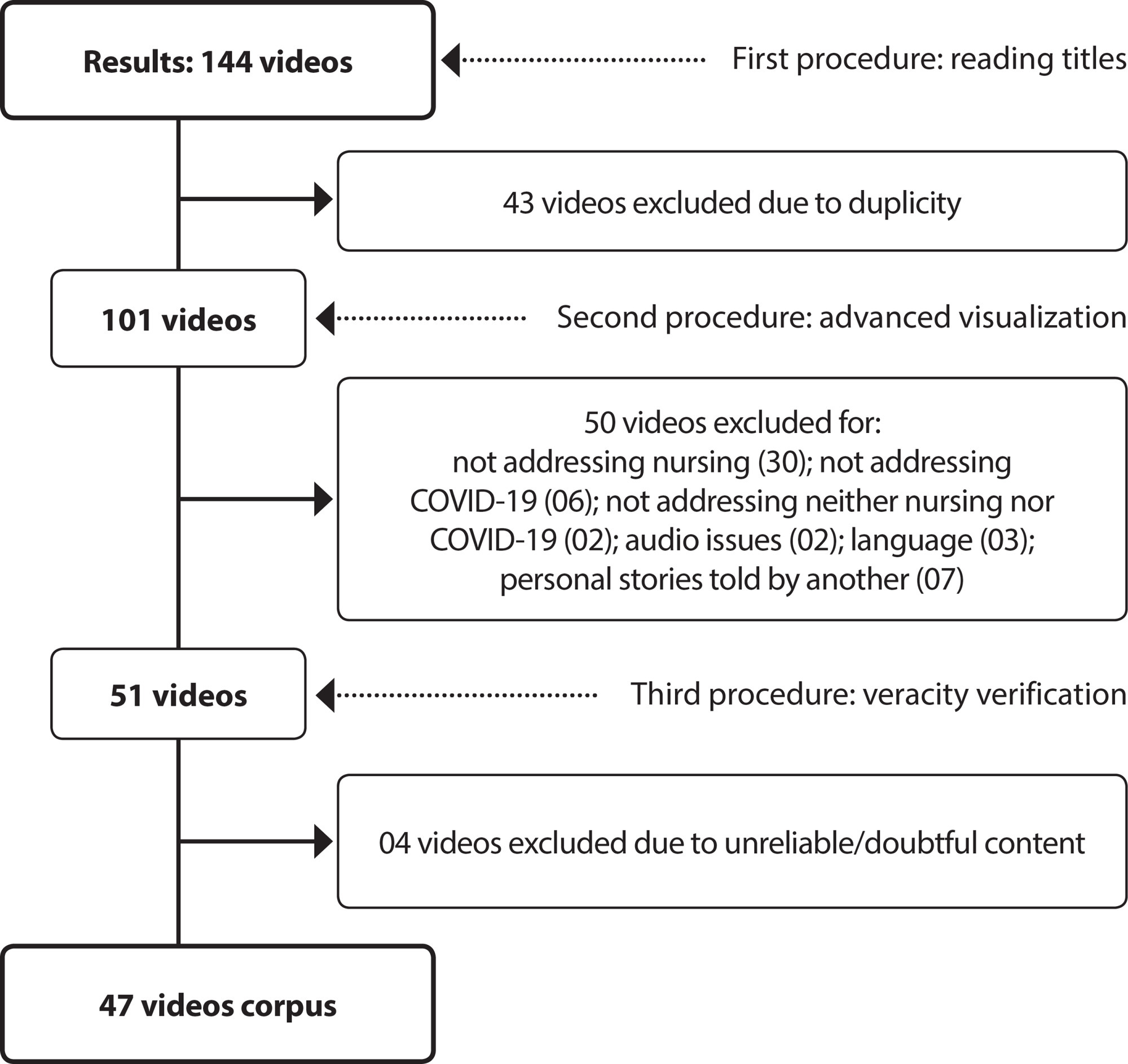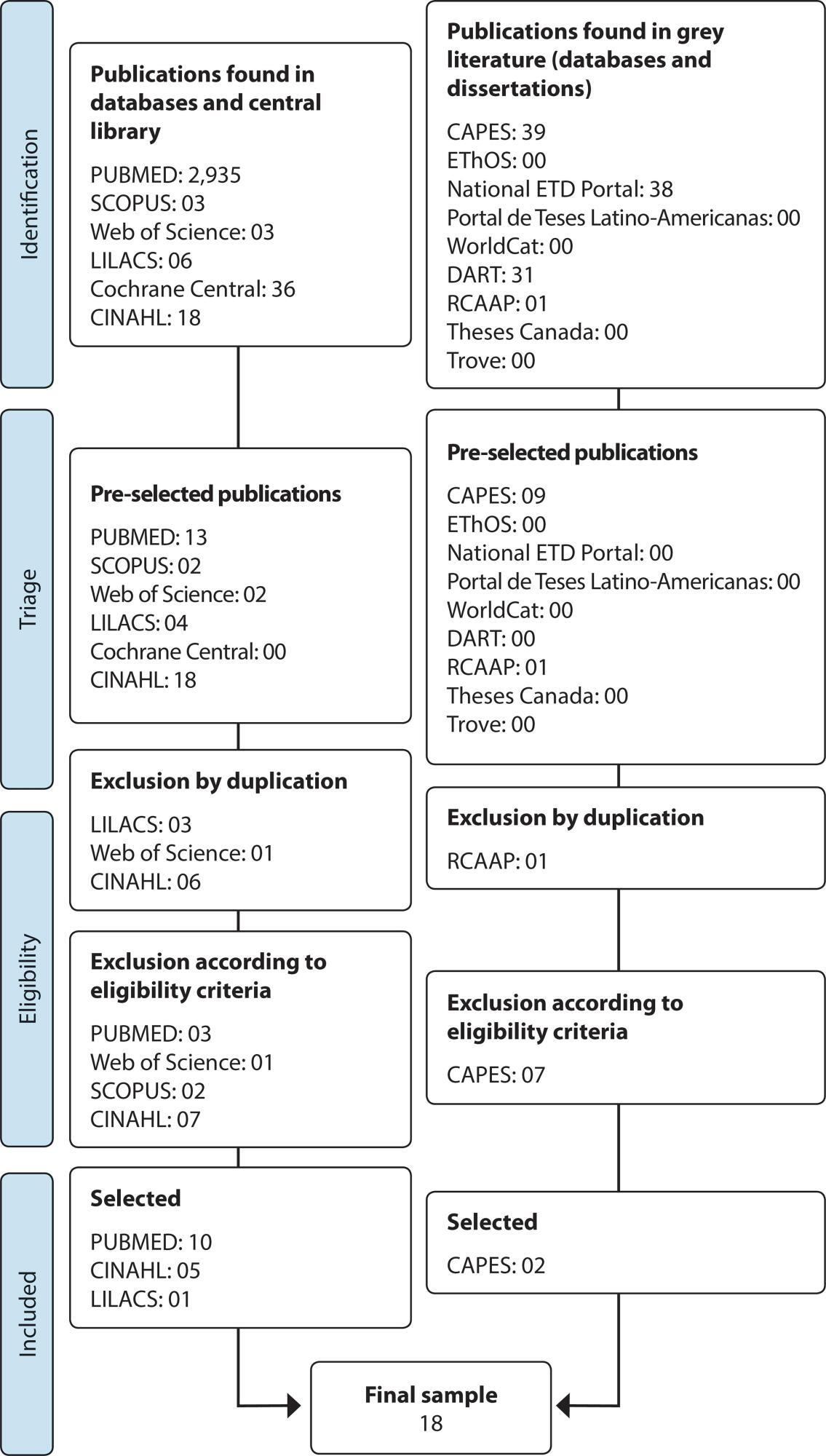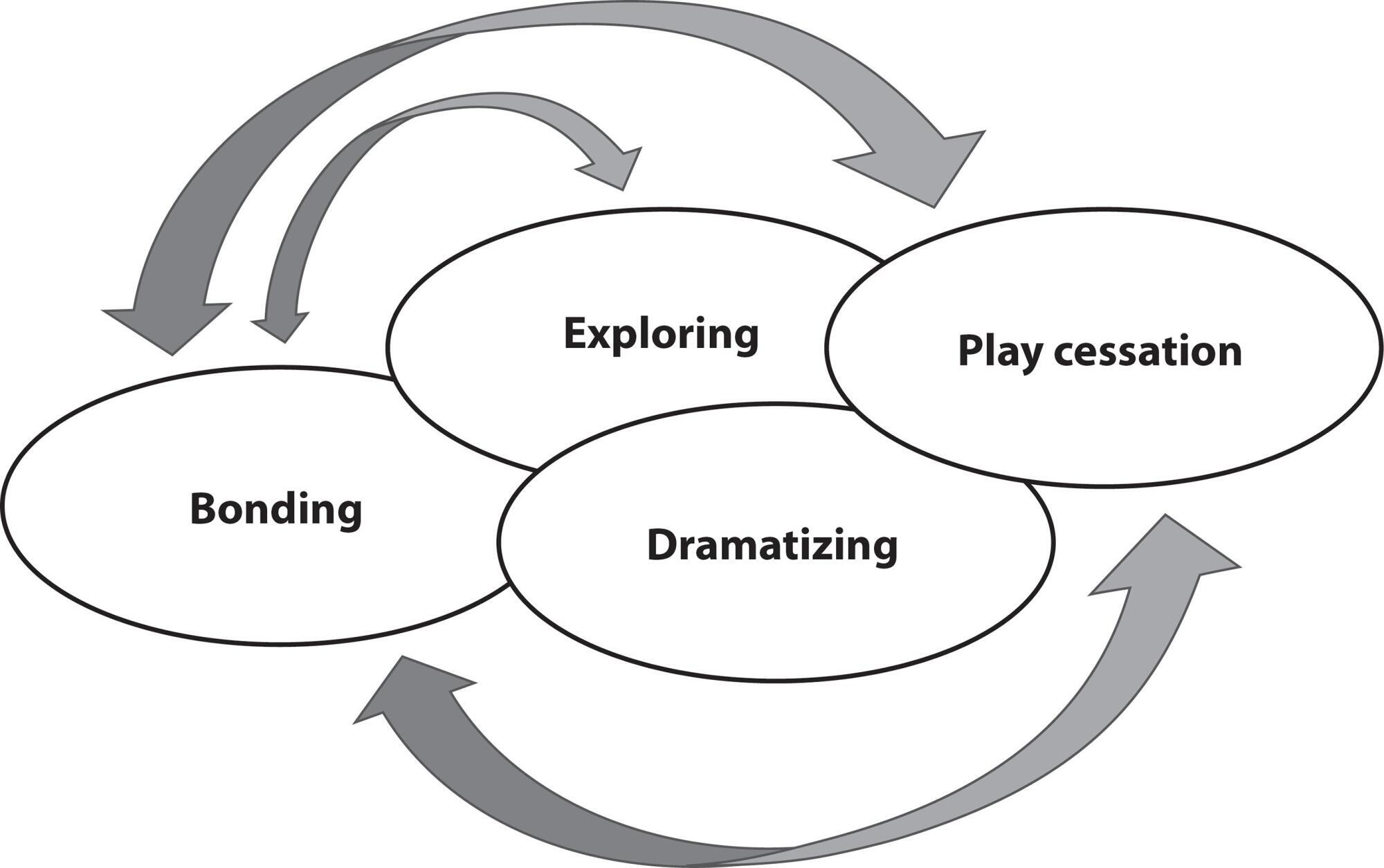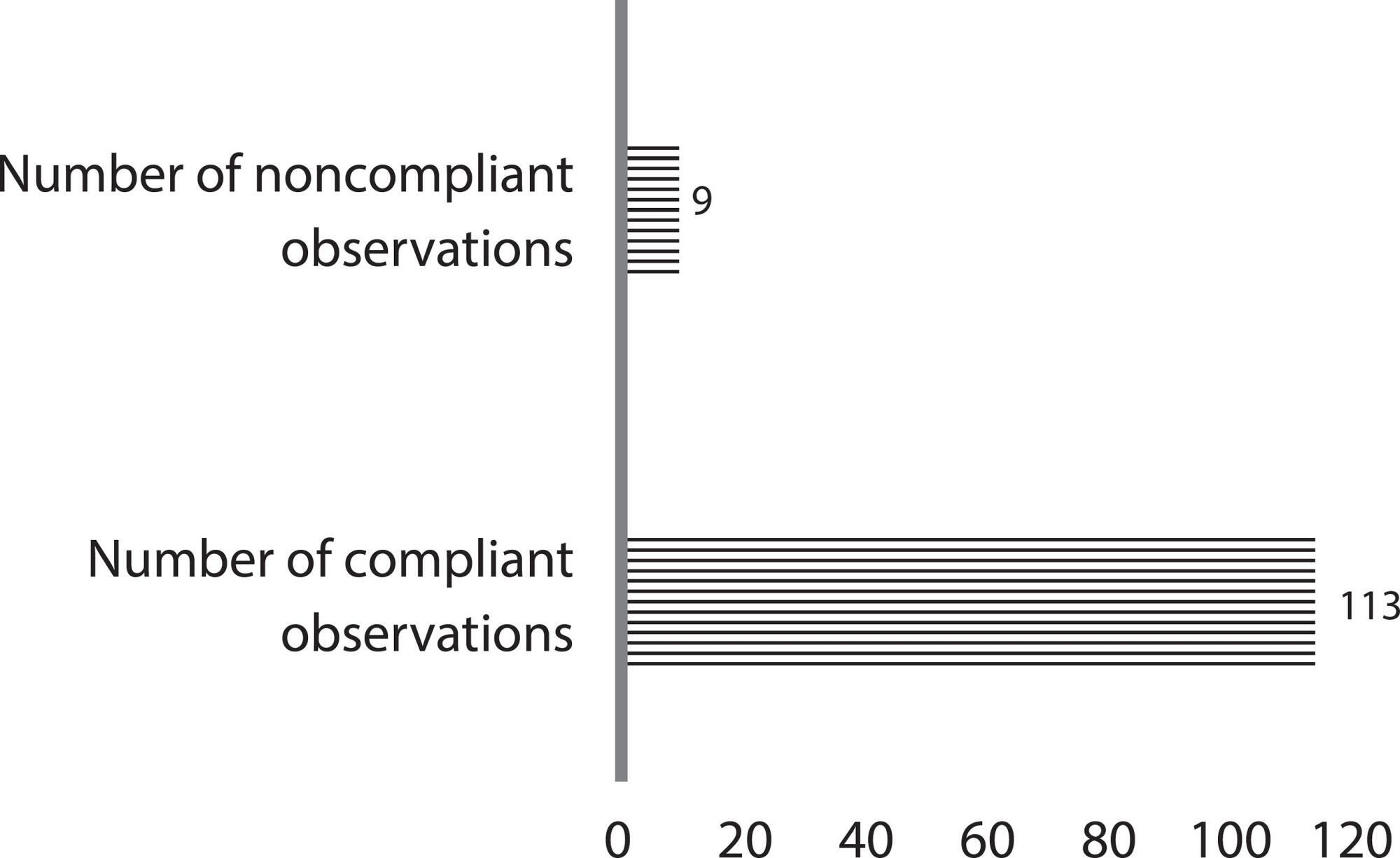-
01-01-2015
Analysis of the decision-making process of nurse managers: a collective refl ection
Revista Brasileira de Enfermagem. 2015;68(4):668-675
Abstract
Analysis of the decision-making process of nurse managers: a collective refl ection
Revista Brasileira de Enfermagem. 2015;68(4):668-675
DOI 10.1590/0034-7167.2015680414i
Views0See moreABSTRACT
Objective:
to analyze the decision-making model adopted by nurses from the perspective of some decision-making process theories.
Method:
qualitative approach, based on action research. Semi-structured questionnaires and seminars were conducted from April to June 2012 in order to understand the nature of decisions and the decision-making process of nine nurses in position of managers at a public hospital in Southern Brazil. Data were subjected to content analysis.
Results:
data were classified in two categories: the current situation of decision-making, which showed a lack of systematization; the construction and collective decision-making, which emphasizes the need to develop a decision-making model.
Conclusion:
the decision-making model used by nurses is limited because it does not consider two important factors: the limits of human rationality, and the external and internal organizational environments that infl uence and determine right decisions.

-
01-01-2015
Social representations of sexuality for the elderly
Revista Brasileira de Enfermagem. 2015;68(4):662-667
Abstract
Social representations of sexuality for the elderly
Revista Brasileira de Enfermagem. 2015;68(4):662-667
DOI 10.1590/0034-7167.2015680413i
Views0See moreABSTRACT
Objective:
to know the social representations of sexuality for the elderly, based on the Social Representation Theory.
Method:
study performed in a Basic Family Health Unit in Maracanau-CE, Brazil, with 30 elderly adults. Data were collected from March through April of 2013, using the free word evocation technique. Data were organized and processed using the EVOC 2000.software
Results:
the subjects evoked 150 words associated with the evocator word “sexuality”. Out of these, 43 were different. At the possible core of the representation of sexuality for the elderly, the following words were found: love, affection and respect. Sex, companionship, understanding and coexistence composed the intermediate elements of representation.
Conclusion:
the performed analyses pointed to love, respect and affection as central elements that structured and organized the social representation of sexuality in the elder years for the group studied.
-
01-01-2015
Post-accident work behavior in caring for people with HIV/Aids
Revista Brasileira de Enfermagem. 2015;68(4):656-661
Abstract
Post-accident work behavior in caring for people with HIV/Aids
Revista Brasileira de Enfermagem. 2015;68(4):656-661
DOI 10.1590/0034-7167.2015680412i
Views0See moreABSTRACT
Objective:
To identify post-accident conduct in the workplace by health professionals in caring for people with HIV/Aids.
Method:
A qualitative and descriptive research study with a socio-historical perspective (1986-2006), performed in a reference hospital for infectious diseases in the State of Santa Catarina. To collect data, interviews were conducted with oral history among 23 health workers and, for the treatment of data, Bardin’s content analysis was used.
Results:
Post-accident behaviors emerged that included assessment, accident records, chemoprophylaxis when necessary, support, monitoring of the injured worker, and mainly psychological support.
Conclusion:
In situations in which the accident could not be avoided, post-exposure behaviors were important biosecurity strategies mentioned by health workers caring for patients with HIV/Aids, in the sense of minimizing the possible transmission of the HIV virus.
-
01-01-2015
Social support towards the necessity of caring after myocardial infarction
Revista Brasileira de Enfermagem. 2015;68(4):649-655
Abstract
Social support towards the necessity of caring after myocardial infarction
Revista Brasileira de Enfermagem. 2015;68(4):649-655
DOI 10.1590/0034-7167.2015680411i
Views0See moreABSTRACT
Objective:
to know the received or assisted social support by the family towards the necessity of care after acute myocardial infarction.
Method:
qualitative and exploratory research. Data collection was carried out through observation and interviews with six families, from February to May, 2012. Data were also analyzed based on the thematic analysis.
Results:
three categories emerged: Immediate social support; Mediate social support; Late social support.
Conclusion:
social support follows the infarction trajectory, which attains the family members and favors the support according to the needs of care in each lived moments by the patient.
-
01-01-2015
Nursing care management for children hospitalized with chronic conditions
Revista Brasileira de Enfermagem. 2015;68(4):641-648
Abstract
Nursing care management for children hospitalized with chronic conditions
Revista Brasileira de Enfermagem. 2015;68(4):641-648
DOI 10.1590/0034-7167.2015680410i
Views0See moreABSTRACT
Objective:
to understand the interactions of nurses managing nursing care for the hospitalized child with a chronic condition.
Method:
Theoretical and methodological references were used, Complex Thought and grounded theory, respectively. In the study 18 subjects have participated arranged in three groups: nurses, nursing technicians and family members. A semi-structured interview was used as technique for data collection. The data analysis followed three stages of coding: open, axial and selective.
Results:
the category “Needing to manage nursing care to the hospitalized child with chronic condition in Pediatric Inpatient Unit” and their subcategories show the complex inter subjective bindings established by nurses that support the practice of nursing care management.
Conclusion:
There are difficulties for nursing professionals to interact with the child’s family and the dialogical order/disorder/interaction/organization in the implementation of the management process of care is.
-
01-01-2015
Functional disability and socioeconomic and demographic factors in elderly
Revista Brasileira de Enfermagem. 2015;68(4):633-640
Abstract
Functional disability and socioeconomic and demographic factors in elderly
Revista Brasileira de Enfermagem. 2015;68(4):633-640
DOI 10.1590/0034-7167.2015680409i
Views0See moreABSTRACT
Objective:
to verify the prevalence of functional disability and associated socioeconomic and demographic factors in elderly patients of Campina Grande/PB.
Method:
cross-sectional study with elderly patients of both genders. The variables associated with functional disability were assessed using Poisson regression.
Results:
A total of 420 elderly patients were included (68.1% women). The highest prevalence of functional disability were found among females aged 80 or older, white, widowed, of economic classes D/E , who lived alone, with frequency of contacts of up to 224 people and diversity of contacts of up to 14 people. After multivariate analysis, statistically significant association was observed between functional disability, gender and age group.
Conclusion:
the association between functional disability gender and age group is shown to be an important guidance for health interventions since it will allow health services to plan actions aiming to improve, maintain or restore the functional capacity of the elderly population.
-
01-01-2015
Hypertension and Diabetes Mellitus Program evaluation on user’s view
Revista Brasileira de Enfermagem. 2015;68(4):626-632
Abstract
Hypertension and Diabetes Mellitus Program evaluation on user’s view
Revista Brasileira de Enfermagem. 2015;68(4):626-632
DOI 10.1590/0034-7167.2015680408i
Views0See moreABSTRACT
Objectives:
to evaluate the program proposed by the Reorganization Care Plan for Hypertension and Diabetes Mellitus on user’s view, and describe aspects of the trajectory of the participants correlating with the program’s evaluation.
Method:
evaluative study with a qualitative approach conducted in health units with the Family Health Strategy, in a city of the metropolitan region of Curitiba, in the period from September to March, 2012. A total of 30 adults with hypertension and/or Diabetes mellitus were interviewed. Data were analyzed through content analysis.
Results:
Four categories were identified: Disease diagnosis; Reasons for the program need; Knowledge of the program, and program evaluation.
Conclusion:
there was the recognition of the orientations, and the monitoring of activities developed, with emphasis in cost reduction for users.
-
01-01-2015
Violence in the eye of adolescents: education intervention with Culture Circles
Revista Brasileira de Enfermagem. 2015;68(4):617-625
Abstract
Violence in the eye of adolescents: education intervention with Culture Circles
Revista Brasileira de Enfermagem. 2015;68(4):617-625
DOI 10.1590/0034-7167.2015680407i
Views0See moreABSTRACT
Objective:
to apply the methodology of Culture Circles on adolescents as a strategy for health education of nurses in the construction of the collective knowledge of the thematic violence.
Method:
action research type and qualitative study. Participants were 11 adolescents from a public school in Recife, PE, Brazil. Data production in Culture Circles included the participant observation with field diary, photographic recording and filming, as well as the photovoice technique. The analysis was performed by triangulating data in dialogue with the literature.
Results:
it was shown that the problematizing action provided by the Culture Circle made possible to create situations in which adolescents felt invited to critically refl ect on the phenomenon of violence in all its complexity.
Conclusion:
the health education intervention, performed by Culture Circles, added learning and mutual growth subsidizing nursing care actions that excel at leadership and autonomy of adolescents.

-
02-05-2021
Contents related to nursing professionals during the COVID-19 pandemic on the Youtube™ platform
Revista Brasileira de Enfermagem. 2021;74:e20200581
Abstract
Contents related to nursing professionals during the COVID-19 pandemic on the Youtube™ platform
Revista Brasileira de Enfermagem. 2021;74:e20200581
DOI 10.1590/0034-7167-2020-0581
Views0See moreABSTRACT
Objective:
to characterize the content of Youtube™ videos related to nursing professionals during the COVID-19 pandemic.
Method:
a qualitative study that examined 47 videos on Youtube™ posted between 11/03 and 11/04 2020, which were subjected to thematic analysis.
Results:
four categories emerged: “the role of nurses in care production during the pandemic”, which addresses the management of services and individual care; “Overview of the pandemic from the perspective of nurses in different countries”, presenting experiences and encouraging physical distance; “Tributes and motivation to mobilize the category”, in addition to targeted tributes, calls for nurses to claim their rights; “Criticisms and demands to improve working conditions”, which highlights the insecurity of care provision settings.
Final considerations:
nursing work conditions in different countries, recognition of the importance of professionals during the pandemic, and claims of the category to improve working conditions were the main content found on Youtube™.

-
REVIEW07-13-2020
Prevention and control measures for neonatal COVID-19 infection: a scoping review
Revista Brasileira de Enfermagem. 2020;73:e20200467
Abstract
REVIEWPrevention and control measures for neonatal COVID-19 infection: a scoping review
Revista Brasileira de Enfermagem. 2020;73:e20200467
DOI 10.1590/0034-7167-2020-0467
Views0See moreABSTRACT
Objective:
to identify with the literature the measures to prevent and control neonatal infection by COVID-19.
Methods:
a scope review carried out by searching for studies in databases and institutional health websites. The final sample was 25 articles.
Results:
among the main measures are the use of masks by suspected or infected people in contact with healthy newborns, hand hygiene before and after each care and feeding as well as the tools used for milking. It is indispensable to use personal protective equipment by health professionals in neonatology services to maintain a private room for infected newborns or to use physical barriers. Early diagnosis and timely case management is essential to reduce virus transmissibility.
Conclusions:
the research contributed to elucidate health and nursing actions in preventing and controlling neonatal infection by COVID-19.

-
REVIEW06-17-2020
Prevention and conduct against the Extravasation of antineoplastic chemotherapy: a scoping review
Revista Brasileira de Enfermagem. 2020;73(4):e20190008
Abstract
REVIEWPrevention and conduct against the Extravasation of antineoplastic chemotherapy: a scoping review
Revista Brasileira de Enfermagem. 2020;73(4):e20190008
DOI 10.1590/0034-7167-2019-0008
Views0See moreABSTRACT
Objectives:
to identify and synthesize scientific evidence on prevention and management of extravasation of antineoplastic agents in adult patients by nurses.
Methods:
scoping review, according to Joanna Briggs Institute and PRISMA-ScR. Research was conducted in five electronic databases, Cochrane Library and eight catalogs of theses and dissertations. Data collection occurred from April to July 2018, with no time limit. The extracted data were analyzed and synthesized in a narrative way.
Results:
a total of 3,110 records were retrieved and 18 studies were kept for review. Most publications (66.6%) had a qualitative approach and addressed both aspects, i.e., prevention and management of extravasation of chemotherapy in adult patients.
Conclusions:
the implementation of protocols based on scientific evidence on prevention and management of extravasation of antineoplastic agents is paramount in order to provide patient safety and support to the nursing staff.

-
REFLECTION09-07-2020
Training and work process in Multiprofessional Residency in Health as innovative strategy
Revista Brasileira de Enfermagem. 2020;73(6):e20190635
Abstract
REFLECTIONTraining and work process in Multiprofessional Residency in Health as innovative strategy
Revista Brasileira de Enfermagem. 2020;73(6):e20190635
DOI 10.1590/0034-7167-2019-0635
Views0See moreABSTRACT
Objectives: To
reflect about education in health and work process on three programs of multiprofessional residency in Florianópolis/SC.
Method:
Reflexive study about Multiprofessional Residency Health Programs of Florianópolis.
Results:
Multiprofessional Residency characterizes training health professionals through service education. Developing these professionals’ specialization with assignments that promote professional exercise and magnifies multiprofessional work at the same time, for excellency in unabridged healthcare.
Final Considerations:
Multiprofessional Residency Programs make interdisciplinary education, sharing knowledge between residents and other professionals stimulating development of innovation skills.
-
ORIGINAL ARTICLE06-08-2020
Understanding the dramatic therapeutic play session: a contribution to pediatric nursing
Revista Brasileira de Enfermagem. 2020;73(4):e20180812
Abstract
ORIGINAL ARTICLEUnderstanding the dramatic therapeutic play session: a contribution to pediatric nursing
Revista Brasileira de Enfermagem. 2020;73(4):e20180812
DOI 10.1590/0034-7167-2018-0812
Views0See moreABSTRACT
Objectives:
to understand how the dramatic therapeutic play session occurs within the care of hospitalized children.
Methods:
qualitative multiple case study, using theoretical references, such as symbolic interactionism and Vygotsky’s theory of symbolic play. Twenty play sessions performed with six children from 3 to 10 years old were analyzed, each corresponding to one case.
Results:
these sessions demonstrated that a dramatic therapeutic play session is a process of four interdependent and complementary steps: bonding, exploring, dramatizing, and play cessation. They also revealed the imaginary situations externalized by the child, the importance of the exploration step for which they manage the imaginary situation and catharsis, and how her higher psychological faculties are articulated during this process.
Final Considerations:
the results contribute to the understanding of the conduct and analysis of the dramatic therapeutic play session, reinforcing the importance of its use in pediatric nursing care practice.

-
ORIGINAL ARTICLE02-10-2020
Motivation and difficulties to reduce or quit smoking
Revista Brasileira de Enfermagem. 2020;73(1):e20180188
Abstract
ORIGINAL ARTICLEMotivation and difficulties to reduce or quit smoking
Revista Brasileira de Enfermagem. 2020;73(1):e20180188
DOI 10.1590/0034-7167-2018-0188
Views0See moreABSTRACT
Objective:
To understand what factors motivate people to reduce or stop tobacco use and what difficulties they face in this process.
Method:
Qualitative, empirical and interpretative research that used a focal group technique for data collection and Discourse Analysis as a theoretical reference for analysis.
Results:
The responses centered on the following aspects: motivation for reduction or cessation of smoking, family and community support received during treatment, benefits from cessation of tobacco, difficulties encountered and strategies for overcoming triggers.
Final Considerations:
The results showed that the users expressed their desire for cessation of tobacco use and that to achieve this goal, family and group support, professional help and changing habits are key factors for this process.
-
ORIGINAL ARTICLE02-10-2020
Common mental disorders in nursing students of the professionalizing cycle
Revista Brasileira de Enfermagem. 2020;73(1):e20180154
Abstract
ORIGINAL ARTICLECommon mental disorders in nursing students of the professionalizing cycle
Revista Brasileira de Enfermagem. 2020;73(1):e20180154
DOI 10.1590/0034-7167-2018-0154
Views0See moreABSTRACT
Objectives:
to verify the suspicion of common mental disorders in nursing students of the professionalizing cycle and the association with sociodemographic features.
Method:
cross-sectional study with a sample of 85 students from a public university in the state of Rio de Janeiro (RJ) who responded to the Self-Report Questionnaire-20 and sociodemographic questions.
Results:
the suspicion prevalence of common mental disorders (CMD) in the sample was 55.3% and it was identified the association with the consumption of alcohol. Of the most frequent SRQ-20 complaints, 95.3% reported “feeling nervous, tense or worried”, 72.9% “having difficulty making decisions”, 60% “sleeping poorly” and 37.6% “having lost interest by things “.
Conclusion:
high prevalence of CMD in the sample and the association with the consumption of alcohol requires preventive and therapeutic actions among the students that minimize the possibility of severe mental disorders related to the consumption of alcohol and other drugs.
-
ORIGINAL ARTICLE06-27-2019
Insertion of central vascular catheter: adherence to infection prevention bundle
Revista Brasileira de Enfermagem. 2019;72(3):774-779
Abstract
ORIGINAL ARTICLEInsertion of central vascular catheter: adherence to infection prevention bundle
Revista Brasileira de Enfermagem. 2019;72(3):774-779
DOI 10.1590/0034-7167-2018-0124
Views0See moreABSTRACT
Objective:
To evaluate the compliance of the care process involving insertion of central vascular catheter (CVC) in hemodialysis.
Method:
Cross-sectional quantitative approach developed at the hemodialysis service of a reference hospital in Sergipe, Brazil. Sample consisting of 1,342 actions evaluated, corresponding to 122 forms for monitoring and control of CVC insertion. Data collection was held from July to December 2016.
Results:
The adherence rate to the use of the insertion form was 54.9%. The procedure evaluated achieved 93% overall compliance. Of the 11 specific actions observed, seven (64%) presented 100% compliance. The density of the overall incidence of primary bloodstream infections reduced from 10.6 to 3.1 infections per 1,000 patients/day.
Conclusion:
Although the observed actions reached specific desired conformities, the use of the checklist was lower than expected. Strategies for monitoring, coaching and educational and organizational actions can contribute to safe care.

Search
Search in:
Nuvem de Tags
Adolescente (85) Atenção Primária à Saúde (239) COVID-19 (91) Criança (91) Cuidados de Enfermagem (269) Educação em Enfermagem (151) Educação em Saúde (139) Enfermagem (930) Enfermagem Pediátrica (86) Estudantes de Enfermagem (77) Estudos de Validação (131) Família (87) Idoso (208) Promoção da Saúde (99) Qualidade de Vida (104) Saúde do Trabalhador (86) Saúde Mental (145) Saúde Pública (82) Segurança do Paciente (150) Tecnologia Educacional (100)



